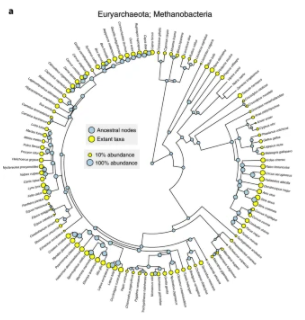Archaea are often mistaken as bacteria, given that both are small, single-cell organisms. However, archaea are as genetically different from bacteria as humans are from bacteria. While archaea are found in most environments, including the human gut microbiome, relatively little is known about them. An international team of researchers from Germany and Austria, led by Nicholas Youngblut at the Max Planck Institute for Developmental Biology in Tübingen, Germany, has compiled the first large scale assessment of archaeal diversity in the vertebrate gut. The study shows that the diversity of archaea in the vertebrate gut is greater than previously thought. Moreover, the study shows how the relatedness of animals and their diets affects archaeal diversity. Read more about the study here. And read the paper here.


